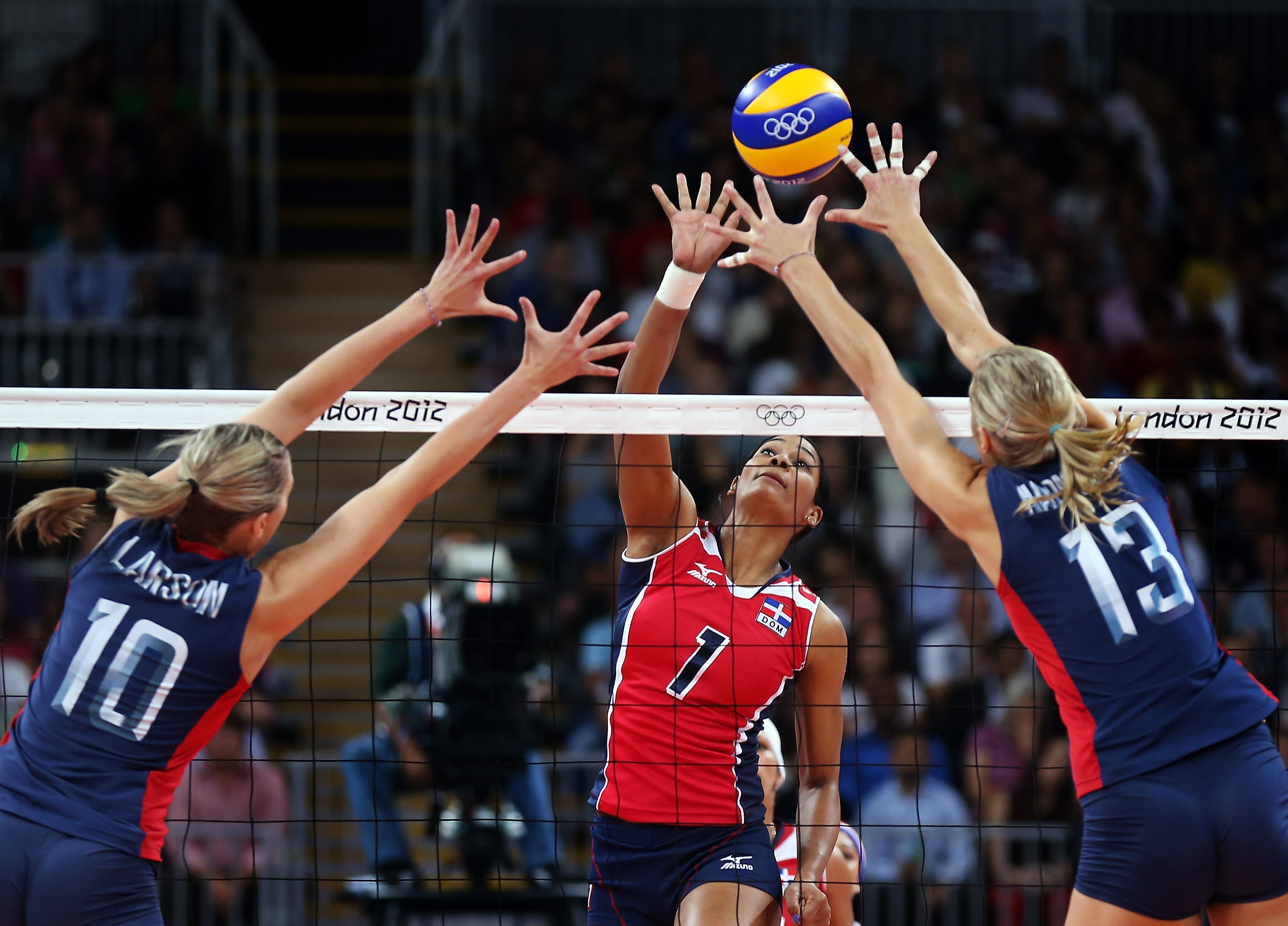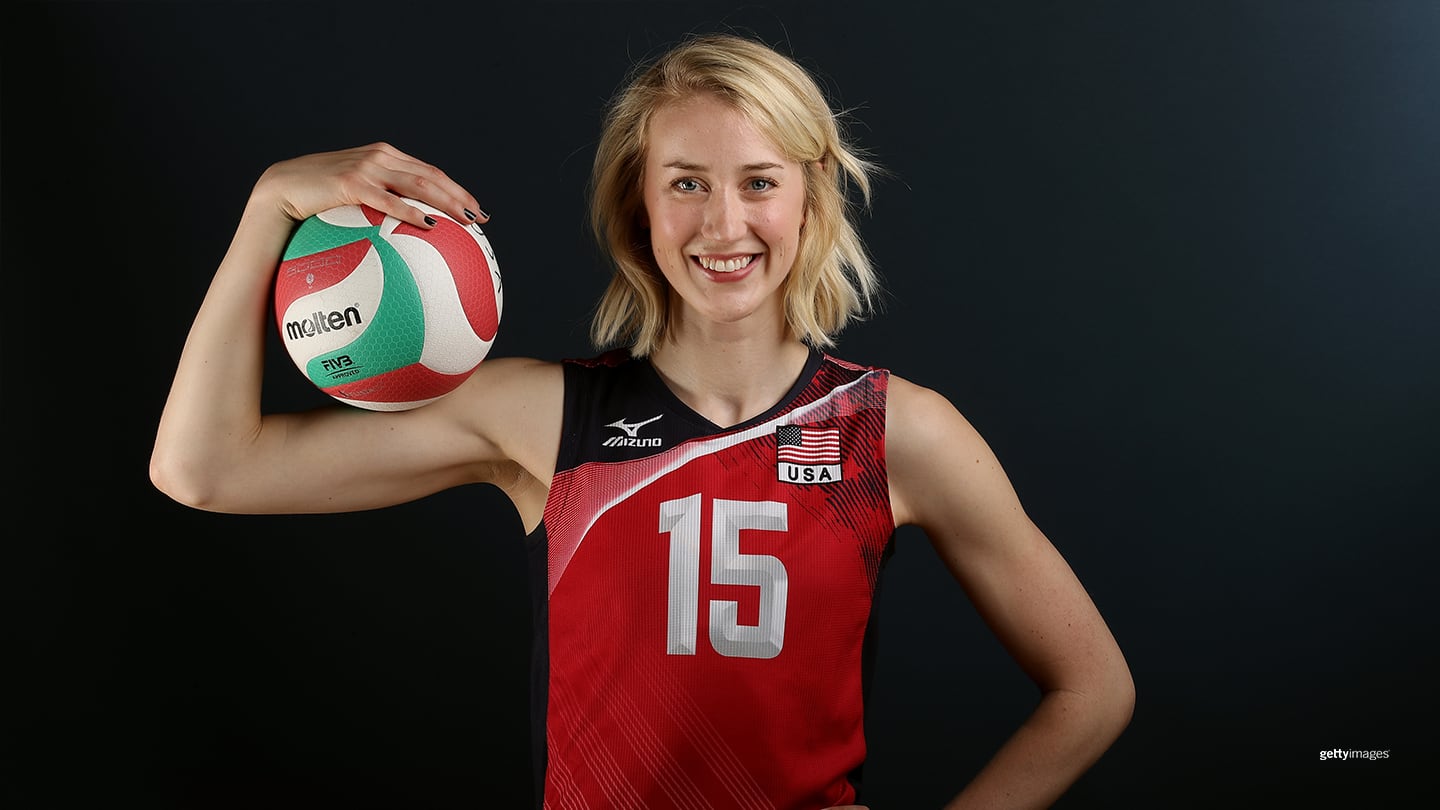History and Evolution of Women’s Volleyball at the Olympics: Olympic Women’s Volleyball

The journey of women’s volleyball at the Olympic Games is a testament to the sport’s enduring appeal and the remarkable athleticism of its players. From its humble beginnings as a demonstration sport to its current status as a global powerhouse, women’s volleyball has undergone a remarkable transformation, captivating audiences worldwide with its dynamic gameplay and inspiring stories of athletic excellence.
Early Years and Demonstration Sport
Women’s volleyball was first introduced at the Olympic Games as a demonstration sport at the 1964 Tokyo Games. This marked a significant step in the sport’s journey toward Olympic recognition. The demonstration status allowed the sport to showcase its unique blend of athleticism, teamwork, and strategic play to a global audience, laying the foundation for its future inclusion as a medal sport.
Official Olympic Debut and Early Success, Olympic women’s volleyball
Women’s volleyball made its official Olympic debut at the 1964 Tokyo Games. The inclusion of women’s volleyball as a medal sport was a testament to its growing popularity and the increasing recognition of women’s athletic achievements. The inaugural Olympic tournament witnessed the dominance of Japan, who secured the gold medal, highlighting the sport’s early emergence in Asia.
The Rise of Soviet Dominance and Global Expansion
The 1970s and 1980s witnessed the emergence of the Soviet Union as a dominant force in women’s volleyball. Their exceptional athleticism, strategic prowess, and unwavering commitment to the sport resulted in a series of Olympic victories, solidifying their position as the sport’s global powerhouse. The Soviet Union’s dominance also played a pivotal role in promoting the sport’s growth and popularity around the world.
The Emergence of New Powers and the Evolution of Playing Styles
The 1990s marked a turning point in women’s volleyball, as new powers emerged to challenge the established order. The United States, Cuba, and Brazil emerged as formidable competitors, introducing innovative playing styles and strategies that transformed the sport’s dynamics. The introduction of new technologies, such as the libero position and the use of video replays, further enhanced the sport’s strategic complexity and spectator appeal.
Prominent Players and Their Impact
The history of women’s volleyball at the Olympics is intertwined with the achievements of iconic players who have left an indelible mark on the sport. Players like Lang Ping (China), Regla Torres (Cuba), and Misty May-Treanor (United States) have captivated audiences with their exceptional skills, leadership, and dedication, inspiring generations of athletes and fans alike.
A Legacy of Athletic Excellence and Global Appeal
Women’s volleyball at the Olympics has evolved into a global spectacle, showcasing the sport’s dynamic gameplay, athleticism, and the inspiring stories of its players. The sport’s continued growth and popularity are a testament to its ability to captivate audiences worldwide, fostering a sense of camaraderie and shared passion for the game.
Notable Teams and Players in Olympic Women’s Volleyball

The Olympic Games have witnessed the rise of legendary teams and players who have left an indelible mark on the history of women’s volleyball. This section explores the most successful national teams and the iconic individuals who have captivated audiences with their exceptional skills and unwavering determination.
Most Successful National Teams
The Olympic stage has been dominated by a select few national teams, each with a rich history of triumphs and legendary players. These teams have consistently showcased their prowess and have established themselves as the titans of women’s volleyball.
- The United States: The American women’s volleyball team has been a force to be reckoned with in recent years, consistently challenging for Olympic gold. Their dominance began in the 1980s, with a bronze medal at the 1984 Los Angeles Games. They then went on to win gold at the 1984 Los Angeles Games and again in 2008 in Beijing, solidifying their position as a global powerhouse. Key players who have contributed to their success include Misty May-Treanor, Kerri Walsh Jennings, Logan Tom, Kim Glass, and Foluke Akinradewo.
- China: The Chinese women’s volleyball team has consistently been a force to be reckoned with in international volleyball. Their dominance in the sport began in the 1980s, culminating in a gold medal at the 1984 Los Angeles Games. They followed this success with a silver medal at the 1996 Atlanta Games and a bronze medal at the 2000 Sydney Games. Their recent success includes a silver medal at the 2016 Rio Games and a gold medal at the 2020 Tokyo Games, solidifying their status as a powerhouse in women’s volleyball. Key players who have contributed to their success include Lang Ping, Feng Kun, Zhu Ting, and Zhang Changning.
- Cuba: The Cuban women’s volleyball team emerged as a dominant force in the 1990s, capturing the hearts of fans worldwide with their incredible athleticism and skillful play. Their dominance culminated in a string of Olympic gold medals, including victories in 1992, 1996, and 2000. They also secured a silver medal in 1992 and a bronze medal in 2004. Key players who have contributed to their success include Regla Torres, Mirka Francia, Idalmis Gato, and Yumilka Ruiz.
- Brazil: The Brazilian women’s volleyball team has been a consistent contender on the international stage, capturing the hearts of fans with their passionate style of play. They have consistently challenged for Olympic medals, winning gold in 2008 and 2016, silver in 2004, and bronze in 1996 and 2000. Key players who have contributed to their success include Sheilla Castro, Fernanda Garay, Thaisa Menezes, and Fabiana Claudino.
- Russia: The Russian women’s volleyball team has a rich history of success in the Olympic Games, showcasing their strength and tactical prowess. They have won gold in 2000 and 2008, silver in 1976, 1980, and 1988, and bronze in 1964 and 1972. Key players who have contributed to their success include Ekaterina Gamova, Yekaterina Kosyanenko, Svetlana Kryuchkova, and Irina Kirillova.
Most Influential and Celebrated Players
Beyond the collective achievements of teams, certain individuals have transcended the sport and become true icons. These players have not only achieved remarkable success but have also inspired generations of athletes with their skills, dedication, and sportsmanship.
- Lang Ping (China): Known as the “Iron Hammer,” Lang Ping is a legendary figure in women’s volleyball. She led the Chinese team to their first Olympic gold medal in 1984 and later became the head coach of the team, guiding them to another Olympic gold in 2016. Lang Ping’s exceptional skills, leadership, and strategic brilliance have left an indelible mark on the sport.
- Misty May-Treanor (United States): A dominant force in beach volleyball, May-Treanor partnered with Kerri Walsh Jennings to win three consecutive Olympic gold medals (2004, 2008, and 2012), establishing themselves as one of the most successful beach volleyball duos of all time. Her incredible athleticism, powerful serves, and strategic prowess made her a formidable opponent.
- Kerri Walsh Jennings (United States): Alongside Misty May-Treanor, Walsh Jennings became a household name in beach volleyball. Their dominance on the court, coupled with their infectious enthusiasm and competitive spirit, captivated audiences worldwide. Her athleticism, powerful hitting, and ability to read the game made her a true champion.
- Zhu Ting (China): Zhu Ting is widely considered one of the most talented volleyball players of her generation. Her exceptional hitting power, versatility, and leadership qualities have made her a dominant force on the court. She led the Chinese team to gold at the 2020 Tokyo Games and has consistently been recognized as one of the best players in the world.
- Regla Torres (Cuba): Torres is a legend of Cuban volleyball, known for her incredible athleticism and powerful spikes. She led Cuba to three Olympic gold medals (1992, 1996, and 2000) and was widely regarded as one of the best hitters of her time.
Olympic Women’s Volleyball Medal Winners
| Year | Gold | Silver | Bronze |
|---|---|---|---|
| 1964 | Soviet Union | Japan | Poland |
| 1968 | Soviet Union | Japan | Poland |
| 1972 | Soviet Union | Japan | East Germany |
| 1976 | Japan | Soviet Union | South Korea |
| 1980 | Soviet Union | East Germany | Bulgaria |
| 1984 | United States | China | Japan |
| 1988 | Soviet Union | Peru | China |
| 1992 | Cuba | Unified Team | United States |
| 1996 | Cuba | China | Brazil |
| 2000 | Cuba | Russia | Brazil |
| 2004 | China | Russia | Brazil |
| 2008 | Brazil | United States | Russia |
| 2012 | Brazil | United States | Japan |
| 2016 | China | Serbia | Netherlands |
| 2020 | China | United States | Serbia |
Olympic women’s volleyball demands incredible athleticism and teamwork. The players’ agility and power are a testament to years of dedication. Just as building a strong team requires careful planning, crafting a cozy space for your children can be equally rewarding.
Check out these childrens table and chair plans free to create a fun and functional area for them. Much like the Olympic athletes, your children will thrive in a space designed with their needs in mind.
Olympic women’s volleyball demands incredible athleticism, requiring players to jump, dive, and react with lightning speed. The demands of the sport can take a toll on their bodies, especially their spines, making it crucial to prioritize proper posture and support.
A comfortable and ergonomic chair, like the true seating concepts office chair 5985 , can be a valuable tool for these athletes to help prevent injuries and recover after intense training sessions, ensuring they’re ready to dominate the court.